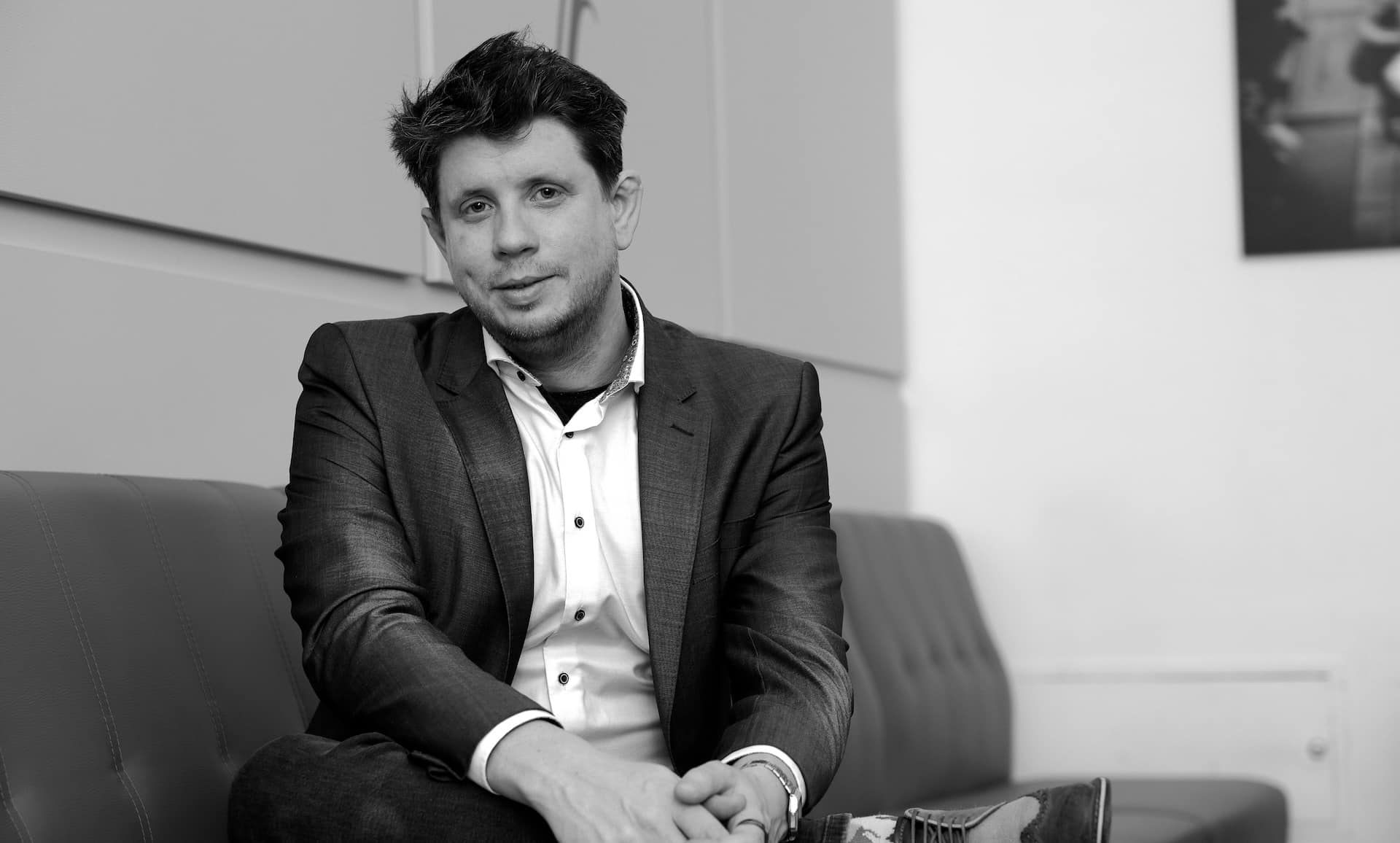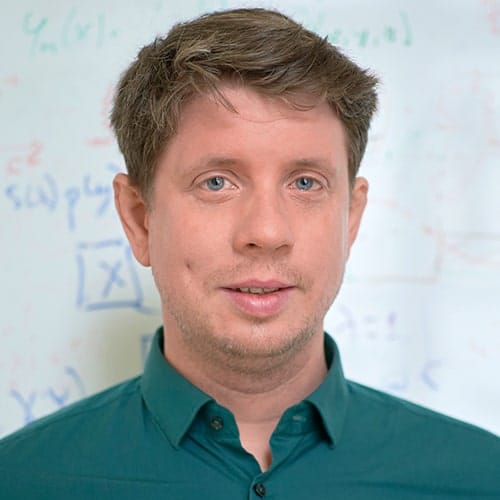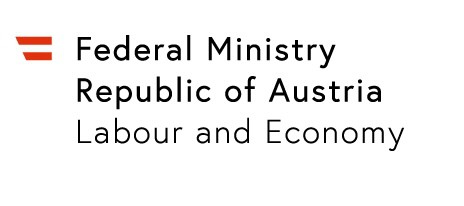Global knowledge loopholes about supply networks have emerged since the pandemic. The Supply Chain Intelligence Institute Austria (ASCII) should now be able to close these gaps. In an interview, ASCII director and complexity researcher Peter Klimek discusses the origins of the new institute, global connections, and his personal vision.
WHAT WAS THE REASON FOR THE FOUNDATION OF ASCII? AND WHY NOW IN PARTICULAR?
Peter Klimek: First of all, to be able to recognize early on that there will be bottlenecks in a supply chain and thus before an actual supply shortage occurs. Secondly, we want to make these value chains not only more resilient, robust and secure, but also provide an evidence-based foundation for decision-makers and show proactively how we can optimally transform them to create a more sustainable and efficient economic system in the future.
WOULD IT BE POSSIBLE FOR YOU TO ELABORATE ON THAT FURTHER?
Peter Klimek: Regarding the first point, we want to help ensure future supply security. ASCII is a necessary consequence of the lessons learned in recent years, where we have experienced multiple crises and clearly felt their impact on supply chains and production networks. Suddenly, things we took for granted before stopped working — food shortages, car parts not being available, etc.
Right now, you can see these consequences directly in the supermarkets in the UK. Prior to this, people hadn’t realized there were problems in supply networks until things “suddenly” became unavailable. There was no way to predict a shortage.
We also observed that supply chains are very fragile and have enormously far-reaching cascading effects. Single events such as a shipwreck, for example, can lead to global disruptions in economic cycles. If disruptions occur in these so-called “bottlenecks” of the supply networks, this subsequently affects the supply of many countries.
“Many largely unresolved questions”
Regarding the second point: many future issues will be directly linked to supply networks. How can we reduce emissions, for example? How do we create a more sustainable economic system? What can we do to ensure carbon-neutral mobility? We have to change industrial structures if we want to rely more on e-mobility, for instance.
As technology changes, production networks must also adapt. We do not yet know where we will run into limitations in many sectors. An example would be how many new technologies can be scaled up to achieve similar efficiency levels.
In other words, would a top-down decision that only e-cars be allowed even be possible in terms of the necessary infrastructure? These are largely unresolved questions so far because we don’t even know what these production networks currently look like in detail. Austria could take measures to produce fewer emissions in food production, for example.
However, if we import food to compensate and do not know how the food was produced, we also would not understand how the global balance would change. Therefore, we must first find out how these global cycles work.
WHAT HAS SUPPLY CHAIN RESEARCH BEEN SO FAR?
Peter Klimek: Most logistics and supply chain research has been conducted from a corporate perspective. Companies strive to optimize their customer base, suppliers, infrastructure, and supply chains. There has been only limited research at the system level, i.e., what an optimal network looks like globally. The reasons for this are, firstly, that the data doesn’t exist. Secondly, research has often been conducted from the perspective of a single company, without taking a macro perspective. At ASCII, we now want to change that.
WHAT DOES ASCII DO DIFFERENTLY?
Peter Klimek: A mix of disciplines is needed for macro level research, and ASCII is bringing those disciplines together (note: through the founding members Complexity Science Hub, Logistikum of FH OÖ, the Verein Netzwerk Logistik GmbH (VNL) and WIFO). Because we need to know the networks and logistics, we need to be able to deal with systems that are very complex and intertwined, and we need to be able to put all this into an economic policy context – after all, these networks serve an economic function.
The Complexity Science Hub’s expertise at the data level will play a central role in deriving evidence-based findings from this enormous amount of data. In addition, we at the Complexity Science Hub already bring a wealth of interdisciplinary experience and are used to analyzing data-driven results in a variety of contexts so that they can serve as the foundation for well-grounded decisions.
WHY DID SUPPLY CHAIN FAILURES OCCUR SO SUDDENLY?
Peter Klimek: Many experts in the specific areas were fully aware of the weaknesses beforehand. On the other hand, these multiple crises have only now brought them into the spotlight. Often, globalization has mainly led to a concentration of production processes, making supply networks more vulnerable. The extent of their vulnerability, however, has now become apparent.
For example, it has been known for years that there is an increasing concentration of the production of prescription drugs in certain countries. As in the pandemic, these things are often only noticeable when they occur.
While there are experts in certain fields, systematic monitoring across a wide range of economic sectors and targeted processing of information are lacking.
WHAT WILL BE ASCII’S MAJOR CHALLENGES?
Peter Klimek: We need to better understand the production and value networks. The data on this will need to be painstakingly gathered from many different sources since there is no complete set. Additionally, in order to understand Austria’s dependencies, we must think of these networks on a European and, in fact, global level.
HOW DID ASCII COME ABOUT?
Peter Klimek: During the pandemic, the issue of supply security came increasingly into focus, so corresponding crisis teams were set up at the ministry, in which the Complexity Science Hub was also represented, among others. There, we quickly realized together that Austria lacked the “intelligence”— in the sense of an overarching intelligence competence — to be able to recognize impending bottlenecks at an early stage. Based on these experiences, individual projects were developed, and finally the idea of an institute that combines all the necessary competencies.
WHAT IS THE VISION FOR ASCII?
Peter Klimek: My vision is that we will become a world-class research institute that addresses supply chain-related issues in a data-driven manner and thereby creates benefits for the population.
As well as providing evidence-based policy guidance, however, we also want to be a point of contact for companies in the business sector. Specifically, we want to build up the missing data landscape for the international research community, since many colleagues are facing the same challenge. We have the opportunity to play a pioneering role on the international stage by founding ASCII. In the next five years, we hope to fill this role through scientifically excellent work.



